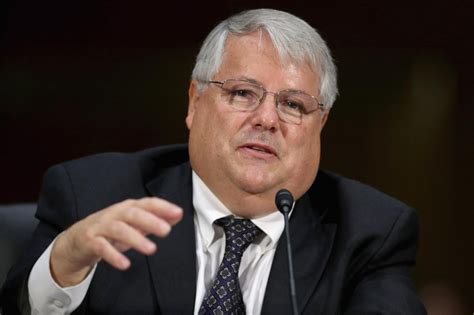A Quote by Carl Icahn
Anyone that makes me a quarter of a billion dollars, I like.
Related Quotes
Yet another hedge fund manager explained Icelandic banking to me this way: you have a dog, and I have a cat. We agree that each is worth a billion dollars. You sell me the dog for a billion, and I sell you the cat for a billion. Now we are no longer pet owners but Icelandic banks, with a billion dollars in new assets.
This sounds crazy, I know, but you can make a billion dollars - very few people do - but you can make a billion dollars on a product. It can be "Lion King," it can be "Simpsons," it can be "Family Guy," who knows what it is. Or you can make zero. But you can't make a billion dollars if you don't own it.
Well, Congress gave us a billion dollars to dig the hole, this gigantic hole. Bigger, much bigger than the hole in Geneva, Switzerland. Then they canceled the machine and gave us a second billion dollars to fill up the hole. Two billion dollars to dig a hole and fill it up. That is the wisdom of the United States Congress and it really makes you wonder: Is there intelligent life on the Earth? Certainly not in the United States Congress.
Once I got to know what's been happening historically, it's pretty impossible to un-know it. Like right now, there's the outbreak of cholera in Haiti, and people see that as a news headline, but I know there's half a billion dollars of aid that one senator is putting a hold on, that the Red Cross has raised half a billion dollars but has only spent $200 million.
How is it possible that a process can be democratic when it comes by way of money? If there is money then it can be elected a senator, it can be elected a representative. Do you know how much it cost to be elected president of the United States? The amount has reached, billions of dollars, 2 billion, 3 billion, 4 billion dollars, that's how much a presidential campaign costs. How much does a senatorial campaign cost? It costs 80 to 90 million dollars; or the campaign of a representative, 40 to 50 million. Is that really a democracy?
In 2010, you have roughly 38 billion dollars spent by government on cyber and telecoms security and another 60 billion or so by private corporations. So approximately 100 billion dollars spent on security, mostly on technological solutions, which the corporates are offering governments in particular; it's a very high growth area. So everyone is climbing over each other to get the contracts for government procurement on this. There is undoubtedly an element of this and that's what encourages, in part, the whole idea of locking down the Internet.


































